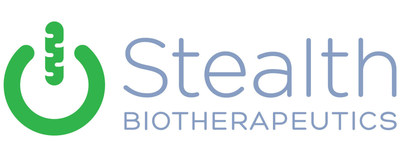Last Patient Completes Treatment in Stealth BioTherapeutics' Phase 2 Geographic Atrophy Clinical Trial
Stealth BioTherapeutics Corp (Nasdaq:MITO) announced the completion of treatment for the final patient in its ReCLAIM-2 phase 2 clinical trial targeting extra-foveal geographic atrophy (GA) due to dry age-related macular degeneration (AMD). The trial involved 176 subjects and assessed the efficacy and safety of elamipretide. Following positive results from a prior phase 1 trial, topline results are expected in Q2 2022. GA affects over five million people globally, with no approved treatments currently available.
- Completion of ReCLAIM-2 trial treatment with 176 subjects enrolled.
- Topline results from the trial are expected in Q2 2022.
- Elamipretide showed promising results in prior phase 1 trial.
- None.
Insights
Analyzing...
BOSTON, Feb. 15, 2022 /PRNewswire/ -- Stealth BioTherapeutics Corp (Nasdaq:MITO), a clinical-stage biotechnology company focused on the discovery, development, and commercialization of novel therapies for diseases involving mitochondrial dysfunction, announced today that the final patient in its 176-subject, ReCLAIM-2 phase 2 clinical trial for extra-foveal geographic atrophy (GA) associated with dry age-related macular degeneration (AMD) has completed treatment. The Company is developing elamipretide for treatment of extra-foveal GA under U.S. FDA Fast Track designation.
A deficit in vision under low light conditions, such as at dusk, during nighttime, or with artificial (indoor) lighting, is often the first clinical symptom of dry AMD, in which irreversible and progressive death of retinal pigment endothelial cells (GA progression) can eventually lead to blindness. Elamipretide previously demonstrated improvement from baseline in assessments of low-light visual function and a lower-than-expected rate of GA progression (relative to the natural history) after 24-weeks of elamipretide therapy in ReCLAIM, a Phase 1 clinical trial that enrolled 40 subjects with dry AMD.
ReCLAIM-2 is designed to assess the safety and efficacy of elamipretide compared to placebo after 48-weeks of administration in 176 subjects with extra-foveal GA. ReCLAIM-2 will assess changes in low-luminance best-corrected visual acuity (LLVA) and in GA area measured by optical coherence tomography (OCT) as the primary endpoint family. Secondary and exploratory endpoints include changes in low-luminance reading acuity, best-corrected visual acuity (BCVA) and patient reported outcomes, GA progression measured by fundus autofluorescence, attenuation of the ellipsoid zone, which is the mitochondria-rich layer of the retina, and assessment of disease progression in the non-study eye.
Full enrollment was completed in February 2021 and the last patient completed the 48-week treatment period in February 2022. The subject database remains blinded with the current emphasis on confirmation of all data entered at study sites, as well as completion of source data verification in preparation of database lock. Topline results are anticipated during the second quarter of 2022, with full analysis to follow.
"We are extremely grateful to the patients whose participation in ReCLAIM-2 enabled our successful completion of this trial and we look forward to sharing our data during the second quarter of this year," said Reenie McCarthy, Chief Executive Officer. "There is a tremendous unmet medical need for therapies to address this devastating disease which leads to progressive vision loss in millions of elderly Americans. We are optimistic based upon our Phase 1 clinical data and increasing clinical evidence in the field that elamipretide may be able not only to slow the otherwise irreversible progression of extra-foveal GA but also to improve visual function and visual quality of life for affected patients."
About Geographic Atrophy
Geographic atrophy (GA) is an advanced form of dry age-related macular degeneration (AMD), a leading cause of blindness. GA lesions affect the central portion of the retina, known as the macula, which is responsible for central vision. GA is progressive and irreversible, leading to central visual impairment and permanent loss of vision. Based on published studies, more than five million people have GA globally including an estimated two million people in the United States. There are currently no approved treatments for GA.
About Stealth
We are a clinical-stage biotechnology company focused on the discovery, development, and commercialization of novel therapies for diseases involving mitochondrial dysfunction. Mitochondria, found in nearly every cell in the body, are the body's main source of energy production and are critical for normal organ function. Dysfunctional mitochondria characterize a number of rare genetic diseases and are involved in many common age-related diseases, typically involving organ systems with high energy demands such as the eye, the neuromuscular system, the heart and the brain. We believe our lead product candidate, elamipretide, has the potential to treat ophthalmic diseases entailing mitochondrial dysfunction, such as dry age-related macular degeneration, rare neuromuscular disorders, such as primary mitochondrial myopathy caused by nuclear DNA mutations and Duchenne muscular dystrophy, and rare cardiomyopathies, such as Barth syndrome. We are evaluating our second-generation clinical-stage candidate, SBT-272, for rare neurological disease indications, such as amyotrophic lateral sclerosis and frontotemporal dementia, following promising preclinical data. We have optimized our discovery platform to identify novel mitochondria-targeted compounds which may be nominated as therapeutic product candidates or utilized as mitochondria-targeted vectors to deliver other compounds to mitochondria.
Forward-looking Statements
This press release contains forward-looking statements within the meaning of The Private Securities Litigation Reform Act of 1995. Such forward-looking statements include those regarding Stealth BioTherapeutics' expectations for its clinical trial of elamipretide for GA associated with dry AMD and its plans regarding future data read-outs and presentations. Statements that are not historical facts, including statements about Stealth BioTherapeutics' beliefs, plans and expectations, are forward-looking statements. The words "anticipate," "expect," "hope," "plan," "potential," "possible," "will," "believe," "estimate," "intend," "may," "predict," "project," "would" and similar expressions are intended to identify forward-looking statements, although not all forward-looking statements contain these identifying words. Stealth BioTherapeutics may not actually achieve the plans, intentions or expectations disclosed in these forward-looking statements, and you should not place undue reliance on these forward-looking statements. Actual results or events could differ materially from the plans, intentions and expectations disclosed in the forward-looking statements as a result of known and unknown risks, uncertainties and other important factors, including: Stealth BioTherapeutics' ability to obtain additional funding and to continue as a going concern; the impact of the COVID-19 pandemic; the ability to successfully demonstrate the efficacy and safety of Stealth BioTherapeutics' product candidates and future product candidates; the preclinical and clinical results for Stealth BioTherapeutics' product candidates, which may not support further development and marketing approval; the potential advantages of Stealth BioTherapeutics' product candidates; the content and timing of decisions made by the FDA, the EMA or other regulatory authorities, investigational review boards at clinical trial sites and publication review bodies, which may affect the initiation, timing and progress of preclinical studies and clinical trials of Stealth BioTherapeutics product candidates; Stealth BioTherapeutics' ability to obtain and maintain requisite regulatory approvals and to enroll patients in its planned clinical trials; unplanned cash requirements and expenditures; competitive factors; Stealth BioTherapeutics' ability to obtain, maintain and enforce patent and other intellectual property protection for any product candidates it is developing; and general economic and market conditions. These and other risks are described in greater detail under the caption "Risk Factors" included in the Stealth BioTherapeutics' most recent Annual Report on Form 20-F filed with the Securities and Exchange Commission ("SEC"), as well as in any future filings with the SEC. Forward-looking statements represent management's current expectations and are inherently uncertain. Except as required by law, Stealth BioTherapeutics does not undertake any obligation to update forward-looking statements made by us to reflect subsequent events or circumstances.
Investor Relations
Stern Investor Relations
Janhavi Mohite, 212-362-1200
IR@StealthBT.com
![]() View original content to download multimedia:https://www.prnewswire.com/news-releases/last-patient-completes-treatment-in-stealth-biotherapeutics-phase-2-geographic-atrophy-clinical-trial-301481918.html
View original content to download multimedia:https://www.prnewswire.com/news-releases/last-patient-completes-treatment-in-stealth-biotherapeutics-phase-2-geographic-atrophy-clinical-trial-301481918.html
SOURCE Stealth BioTherapeutics Inc.








